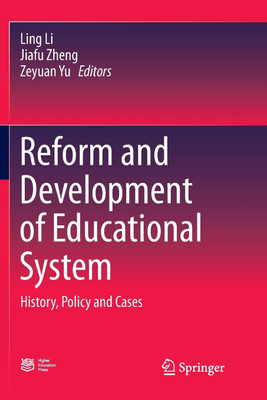Reform and Development of Educational System(English, Paperback, unknown)
Quick Overview
Product Price Comparison
In this book, the authors pursue quantitative, qualitative and mixed methods approaches, conducting hundreds of large-scale surveys and in-depth interviews in 679 schools, 67 counties and 13 provinces throughout China. They also conducted longitudinal case studies in five municipalities and provinces to better reflect education reform and development in different education levels or sectors. The authors used national statistical data from the 1970s to 2013, as well as a wealth of first-hand documents and data from different levels of educational departments in schools, counties, municipals and provinces and "grass-roots" input from 253 teachers, principals, education administrators and students. The authors applied SEM, HLM, GCM, and many other statistic techniques and qualitative methods to analyse the data and materials in order to explore correlations between development and reform, internal and external factors in educational reforms, as well as strategies for resolving core issues. Their findings indicate that institutional reforms concerning financial investments, allocation of teaching resources, allocation of facilities, curricula design systems, and political, economic, social system reforms all contribute to the development of different levels and types of education in different modes and to different extents. Topics of particular interest include five case studies conducted in five different municipalities and provinces that showcase the nation's education reform and development in a specific model and on the basis of substantial data. Further, milestone events regarding educational reform and development that have taken place in China since 2013 are examined. As a unique feature, the book also includes 353 diagrams and tables on the development and reform of education in China, offering extensive and up-to-date information on a part of the world that often remains difficult to access. The book provides an expansive and in-depth examination of the nation's education reform and development, from its historical roots to the present, and combining official and "grass-roots" standpoints. It will help readers to understand why and how Chinese education could lead students to win in international comparisons like PISA while at the same time often being the target of scathing criticism, as well as how the nation is now working to provide a better education to serve the world's largest population.


